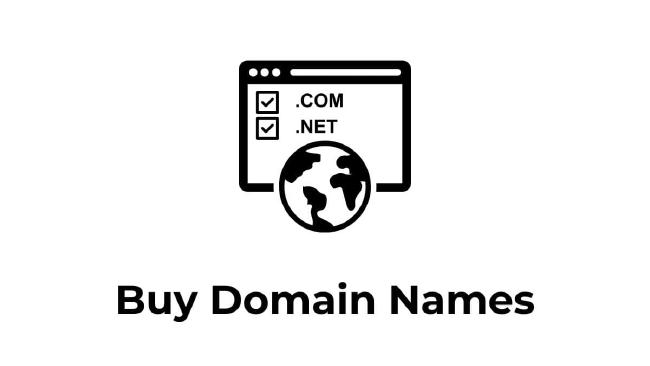What is Ecommerce - History, Types & Key Components
In recent years, ecommerce has witnessed exponential growth, revolutionizing the way people conduct business transactions. From small-scale entrepreneurs to multinational corporations, ecommerce has become an integral part of modern commerce, reshaping consumer behavior and market dynamics.
What is Ecommerce?
Well, what is ecommerce? Ecommerce, short for electronic commerce, refers to the buying and selling of goods and services over the internet. This modern business model has transformed the way consumers and businesses interact, offering unprecedented convenience and accessibility. Understanding ecommerce is crucial in today’s digital age, where online transactions have become a norm.
Types of Ecommerce
There are many types of ecommerce. Selecting the [right ecommerce platform]/blog/best-ecommerce-platforms/ is essential for the success of an online business.
- Business to Consumer (B2C): This is the most common type of ecommerce, where businesses sell products or services directly to consumers. Examples include online retailers like Amazon and Walmart.
- Business to Business (B2B): In B2B ecommerce , transactions occur between businesses. This includes manufacturers selling to wholesalers or wholesalers selling to retailers.
- Consumer to Consumer (C2C): C2C ecommerce involves transactions between consumers, often facilitated by third-party platforms like eBay or Craigslist.
- Consumer to Business (C2B): C2B ecommerce is less common but growing, where individuals sell products or services to businesses. Freelance platforms like Upwork exemplify this model.
Benefits of Ecommerce
When it comes to building ecommerce stores , there are numerous advantages that have contributed to its widespread adoption.
- Convenience: Ecommerce allows consumers to shop 24/7 from the comfort of their homes, eliminating the need for physical store visits.
- Wider Reach: Businesses can reach a global audience, breaking geographical barriers and expanding their market base.
- Cost-Effective: Operating an online store typically incurs lower costs compared to a physical store, as it eliminates expenses like rent and utilities.
- Personalized Shopping Experience: Advanced algorithms and data analytics enable businesses to offer personalized product recommendations, enhancing the shopping experience.
Challenges of Ecommerce
Despite its benefits, ecommerce comes with its set of challenges.
- Security Concerns: Cybersecurity threats such as hacking, phishing, and data breaches are significant concerns for online businesses and consumers.
- Competition: The ease of entry into the ecommerce market has led to intense competition, making it challenging for new businesses to stand out. Therefore, it's essential to develop social media monetization strategies.
- Logistics and Shipping: Managing logistics and shipping efficiently, especially for global deliveries, can be complex and costly.
- Customer Trust: Building and maintaining customer trust is crucial, as online transactions lack the personal touch of in-store shopping.
Payment Gateways
Secure and efficient payment processing is vital for any ecommerce business.
- PayPal is a widely used payment gateway that offers convenience and security for both businesses and consumers.
- Stripe provides flexible payment processing solutions and supports a wide range of payment methods.
- Square is known for its easy integration and is a popular choice for small to medium-sized businesses.
The Future of Ecommerce
Ecommerce is continually evolving, driven by technological advancements and changing consumer preferences.
Mobile Commerce
The rise of smartphones has led to increased mobile commerce, with consumers making purchases directly from their mobile devices.
Artificial Intelligence
AI and machine learning are enhancing ecommerce through personalized recommendations, chatbots, and improved customer service.
Augmented Reality
AR is transforming the online shopping experience by allowing consumers to visualize products in their real environment before purchasing.
Online Commerce Holds Limitless Possibilities
Ecommerce has revolutionized the way businesses operate and consumers shop, offering unparalleled convenience, choice, and accessibility. As technology continues to advance and consumer preferences evolve, ecommerce businesses must adapt and innovate to stay competitive in a dynamic and ever-changing marketplace. By leveraging the power of ecommerce platforms, embracing emerging technologies, and prioritizing customer experience, businesses can unlock new opportunities for growth and success in the digital age. As we look ahead, the future of ecommerce holds limitless possibilities, promising exciting innovations and transformative experiences for businesses and consumers alike.
Related Posts
Highest Paid Bloggers
In the dynamic world of blogging, a select few have risen to the top, turning their passion for writing into lucrative careers. This article delves into the lives and earnings of the highest-paid bloggers, explores the various monetization methods they employ, and provides insights into how they transformed their blogs into successful businesses.
Read more39 Ways to Earn Money in 60 Minutes
In today's digital age, there are numerous ways to earn money online quickly. You can earn money selling stock photos, renting out your driveway, participating in focus groups and more. Each method is designed to be practical and easy to implement, making it perfect for anyone looking to boost their income in a short amount of time.
Read moreHow to Buy Domain Names
In the digital era, selecting the right platform for purchasing domain names is a critical step in building a strong online presence. The decision impacts not only the ease of managing your domain but also the level of support and features you receive.
Read more

